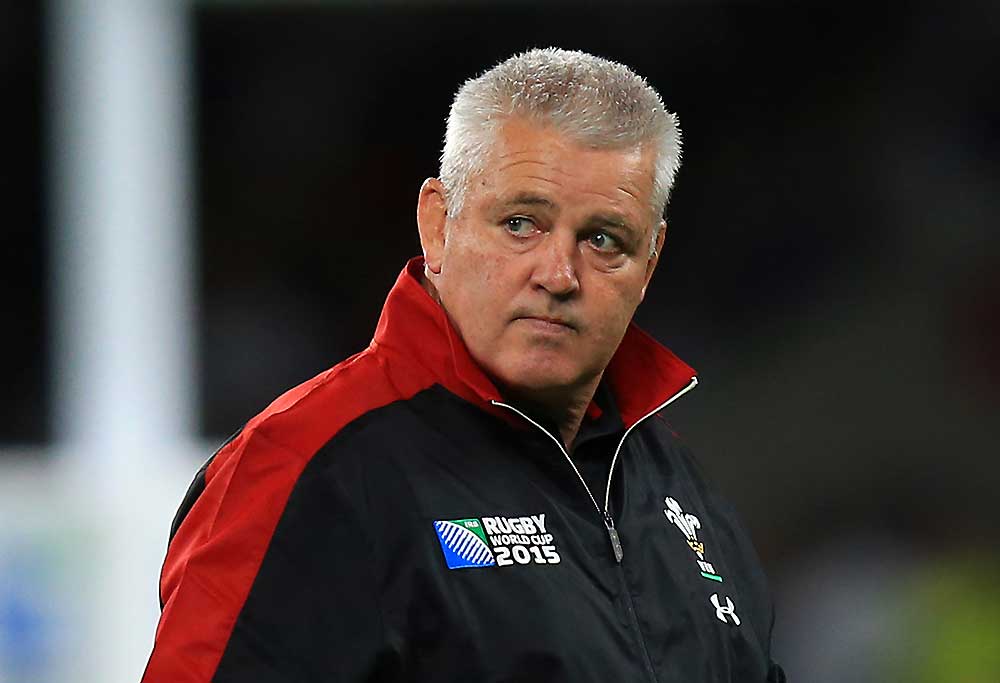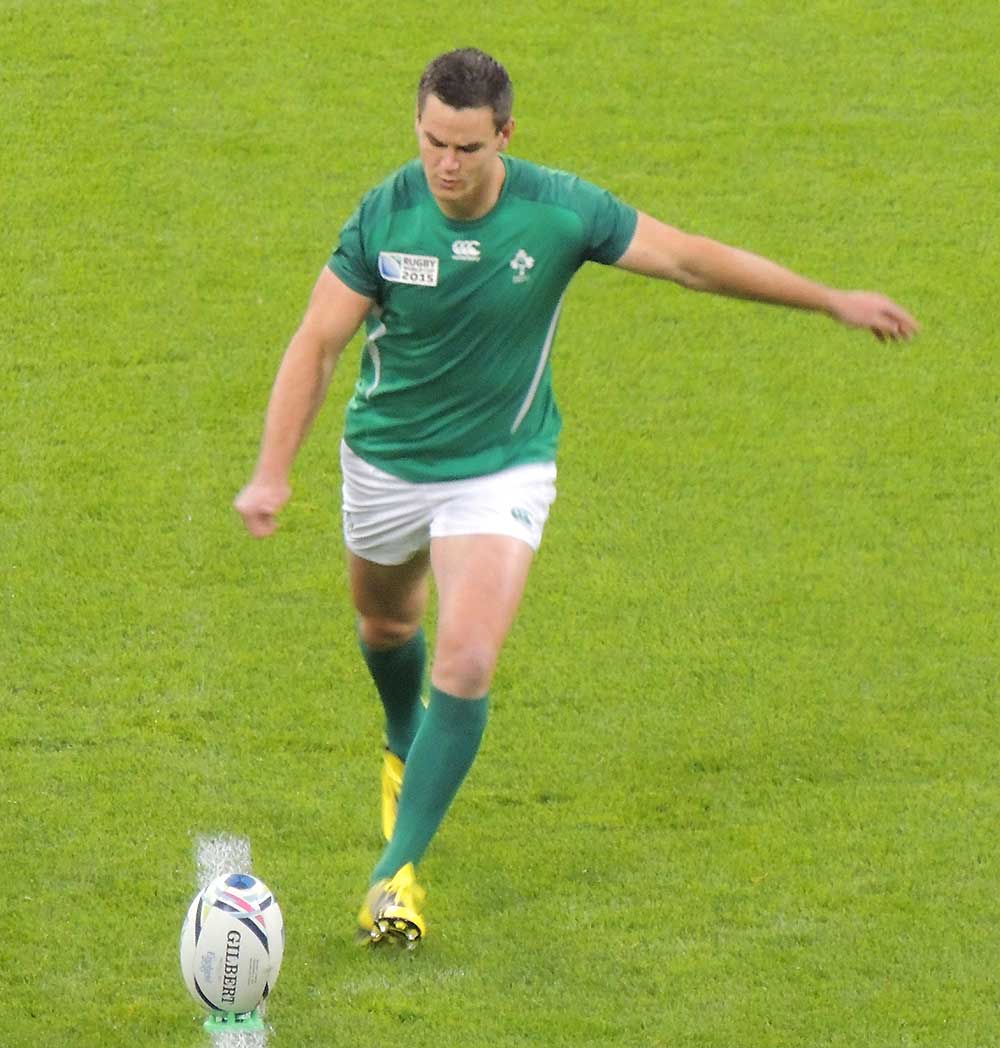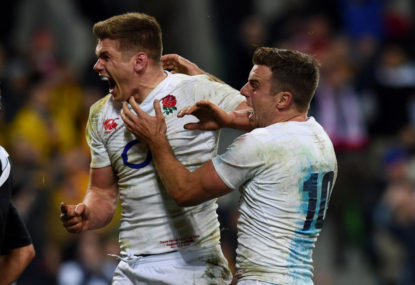One of the most annoying and inaccurate notions about success at Rugby World Cup is that of teams ‘peaking too soon’, thereby destroying their hopes of winning the tournament.
»It used to be a running joke in the commentary of Peter FitzSimons, designed to somehow point the bone at the All Blacks.
Rugby World Cup Teams
The truth of the matter is that New Zealand, who can invariably be accused of peaking too soon (except for their dismal year of 2009), have won three World Cup titles, two back-to-back in 2011 and 2015, and were defeated finalists in 1995.
The All Blacks in 1987 and the Springboks in 1995 are the two teams that came from the back of the field to win.
In six Rugby World Cup tournaments, the winner had strong form going into the competition. The Wallabies, coached by Bob Dwyer and Rod Macqueen, were among the favourites to win in 1991 and 1999.
Sir Clive Woodward’s England side, winners in 2003, were favourites after defeating all the top-tier teams leading up to the tournament.
The Springboks won in 2007 under Jake White having established a formidable record of wins at home. They covered up their poor away form by treating the tournament in France as if it were being played in South Africa. They went into a virtual laager during the tournament, before defeating an England team in the final that they had already crushed in the pool rounds.
History suggests, therefore, that teams that do not peak in their performances in the two years before the tournament have little chance of winning the Webb Ellis trophy.
With this in mind, we come to an initial analysis of the first round of the 2018 Six Nations.
[latest_videos_strip category=”rugby” name=”Rugby”]
And this brings us to the enigma that is Wales.
In the 1970s, Wales produced the sort of brilliant players and play that we now expect from the All Blacks. Those of us who know our rugby history and have been in the crowd for a Test at Cardiff will always love Welsh rugby. The passion and the hwyl (the singing of the crowd) provide the unforgettable impression that you are in Rugby Country when you watch Wales play at the Millennium Stadium.
What Mecca is to the followers of Islam, what Rome is to Catholics, the Millennium Stadium with Wales playing your team is to ardent followers of the rugby game. It is an occasion every fan should experience.
In the opening match of the 2018 Six Nations, Wales played with the craft, skill, toughness and passion of those great teams of the ’70s. The 34-7 bonus-point demolition of Scotland, four tries to one, was as devastating as it was unexpected.
Last year, the Scots almost beat the All Blacks, leading rugby prophets to predict a Scottish revival into the first tier. Instead, the side was exposed in the set pieces, defence and attack. In other words, the defeat for Scotland – and victory for Wales – was comprehensive in every respect.
Gregor Townsend’s team made the mistake of playing wide before establishing any momentum in the middle of the field with driving play by the forwards. This was compounded by an obsession to have players in the line and hardly anyone supporting the ball carrier. The result was Wales’ ability to win penalties by pressurising opposing rucks.
Scotland also discovered that if you play a ball-in-hand game, which to their credit they tried to do, you have to have a sophisticated, smart and well-organised set of defensive systems to cope with the inevitable mistake or turn-over.
One of the opening phases of play, in fact, revealed how well-organised Wales were on defence (Shaun Edwards take a bow) and how poorly organised Scotland were.
The play went on for about five minutes. Both teams exchanged box kicks that gave away possession. Then there long passages of phase play. Finn Russell, the terrier Scotland number 10, was smashed to the ground in a tackle and the ball was slowly recycled. Wales’ impressive halfback, Gareth Davies (a great name in the history of Welsh rugby!) intercepted a clumsy, ponderous pass and ran about 50 metres to score the opening try.
For all the years that Warren Gatland has coached Wales, the side has been one-dimensional in attack. The emphasis has been on a grunt – even in the backs, with massive wingers – on moving the ball forward and relying on kicking and pressure to force errors and points from the opposition.

Warren Gatland (Mike Egerton/PA Wire)
Perhaps it was the experience of the British and Irish Lions players insisting on an all-court game in New Zealand, and their consequent success in drawing their Test series against the All Blacks, rather than Gatland’s baseline-obsessed game, that encouraged the coach to allow some flair and running.
Whatever, Wales now look like a side that on its day can beat any other nation. An early test of this suggestion will come next week, when they play a rampant England side at Twickenham.
Ireland’s last-gasp victory over France, in Paris, was impressive as well, although in a different way.
It takes a special team to win away from home, especially when time is up, after squandering a lead to an unexpected try. This is the sort of heroics the All Blacks specialise in.
The Test was played in rain and mist, making the field and ball greasy. Ireland kept the ball in close, won the battle for possession and position and Johnny Sexton kicked all but one of his shots at goal.
But conditions did not allow for any of the eloquence that Wales invested in their game. And France, it must be said, provided a much sterner challenge than Scotland.
The Test ended with one of the most suspenseful periods of play I have ever seen.
With a few minutes of play remaining, France scored a try against the run of play, and the conversion gave the home side a 13-12 lead. The French then stormed back into the Ireland half and were awarded a penalty. The shot missed.
To begin their final series of plays, the Irish won their drop out from the 22, then calmly and resolutely then went through 41 phases – the most successive phases I have ever seen in a Test. It is almost double the sequence made by New Zealand when they snatched victory from Ireland at Dublin a couple of years ago.
Then Sexton booted a dropped goal through the rain and mist from about 40 metres out.

Jonathan Sexton (Warwick Gastinger / CC BY 2.0)
The skill involved with this kick was exceptional, given the conditions – Sexton apparently remembered he had booted a similar goal against Treviso.
He took the decision to kick from a great distance because he believed the Irish pack had, at most, two more phases left in them before they would be overwhelmed by the fired-up French resistance.
It takes a special team to win a Test in these circumstances; a special player like Sexton to orchestrate the sequence of phases with a recoverable drop out, deft passes, a clever cross kick and then having the courage to take the long-range attempt; and a special coach, Joe Schmidt, to instil in the side the belief that the game is never over until it is over.
No wonder pundits are beginning to talk up Ireland’s chances of being the second European team to win the Rugby World Cup.
The third Six Nations Test over the weekend saw England overwhelm Italy at Rome 46-15, seven tries to two.
England’s last four tries came in the final 12 minutes, a late tsunami of points rather like what happened to the Wallabies on their northern tour last year, when the home side scored 24 points in the final 26 minutes.
Eddie Jones’ side have now won all bar one of their last 24 Tests. According to Richie McCaw, England are justified in believing that they can win the 2019 tournament.
One of the most impressive aspects about England is the way that young players have come into the side and played well. This suggests there is growth to become even better than they are right now – number two in the world rankings, with the chance to be top dogs if they get through the Six Nations undefeated.
Last November, Clive Woodward declared that only three sides can win next year’s World Cup in Japan: New Zealand, England and Ireland. It’s a big call considering no northern hemisphere side made the semi-finals in 2015.
To this list of potential winners, I would add Wales, Australia and South Africa – the side that came closest to defeating the All Blacks in the last tournament.
This brings me to my first fearless prediction for the year: two of the semi-finalists in 2019 will be northern hemisphere sides.































































































